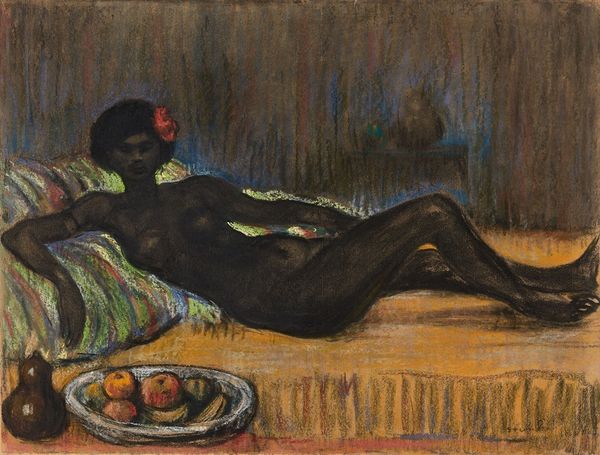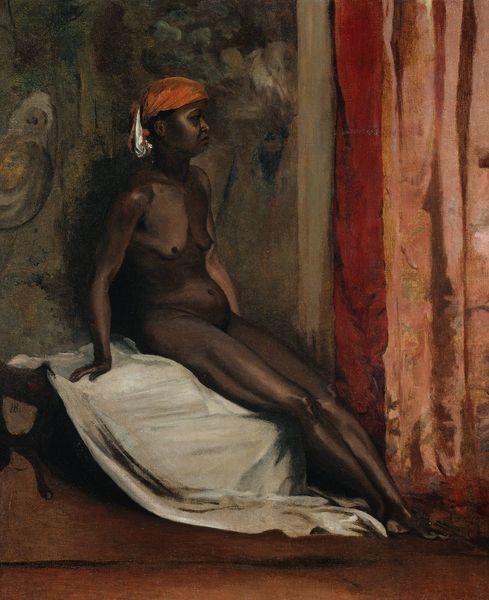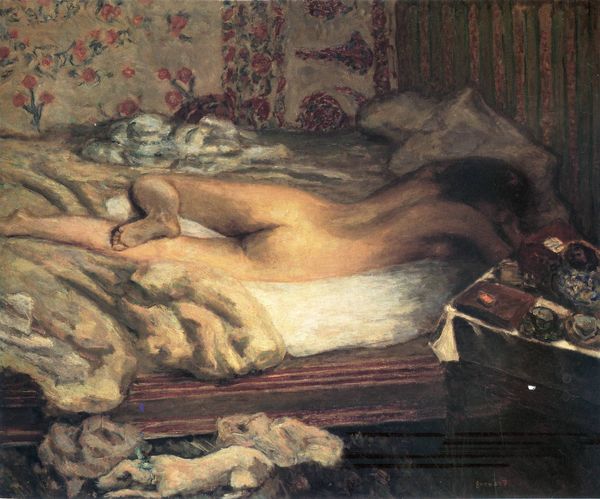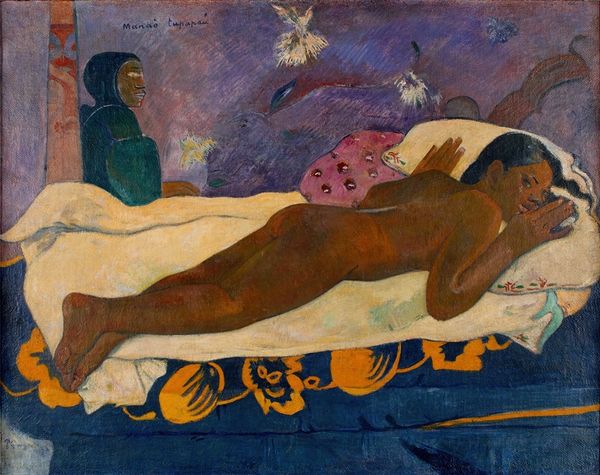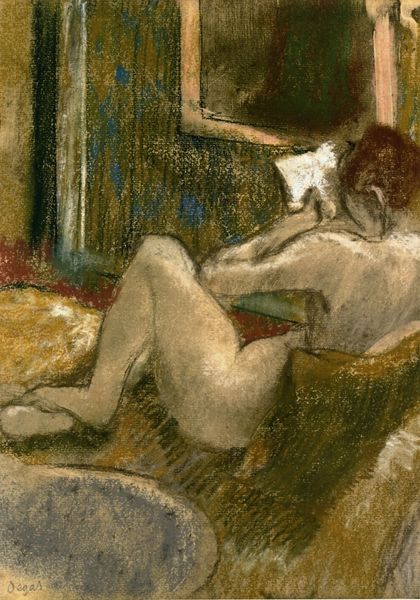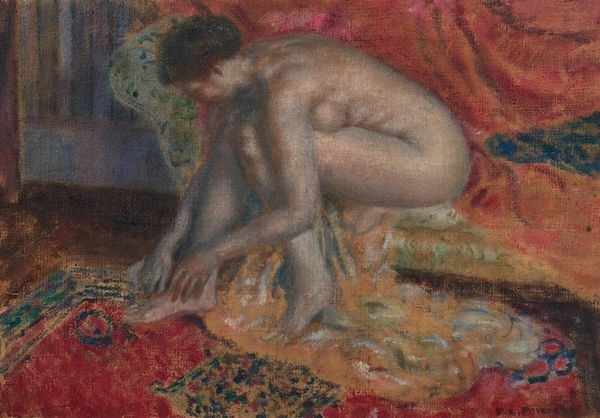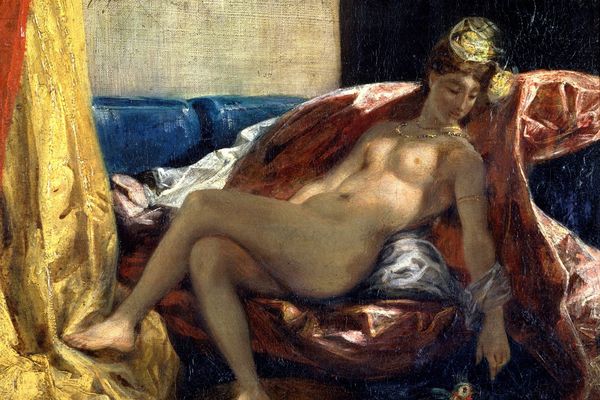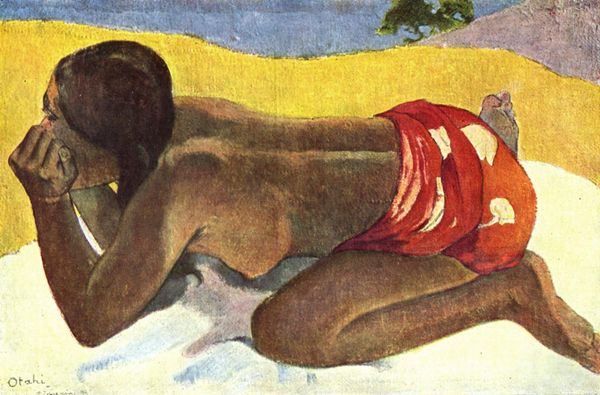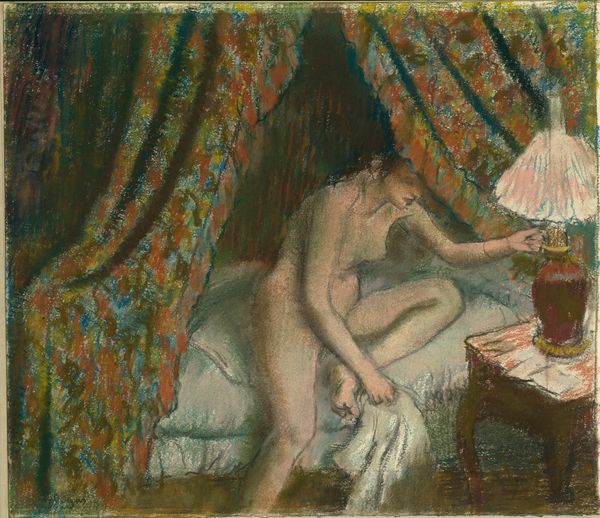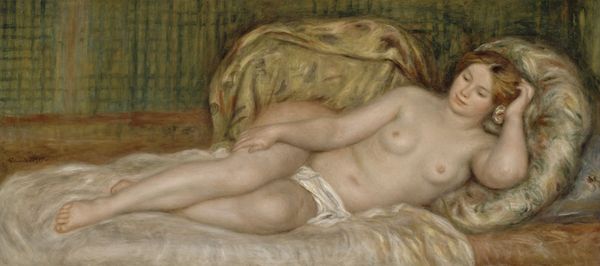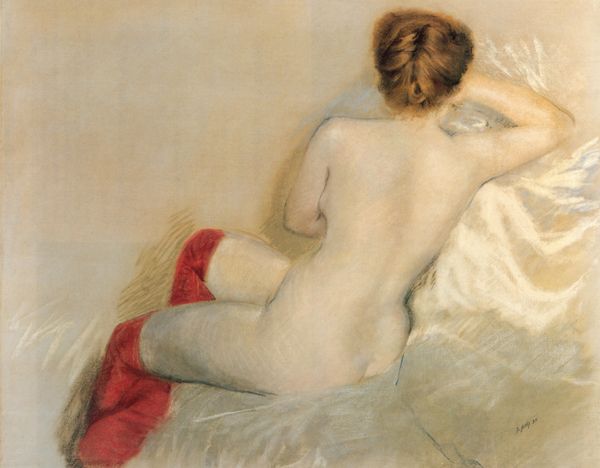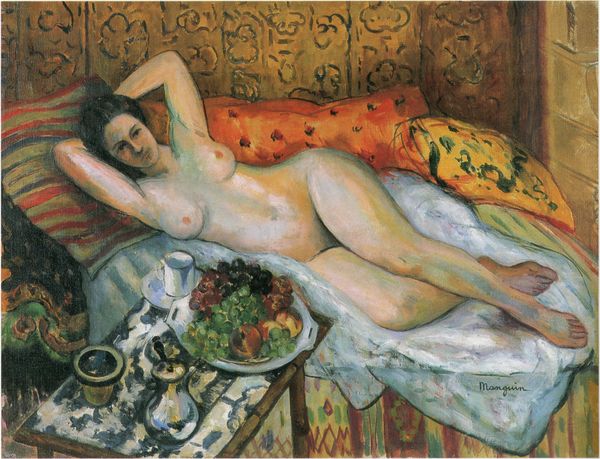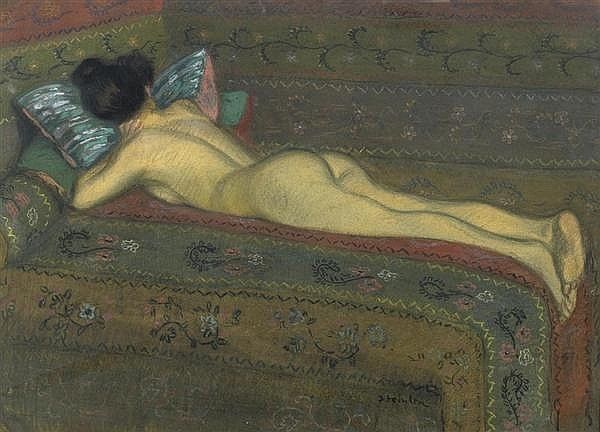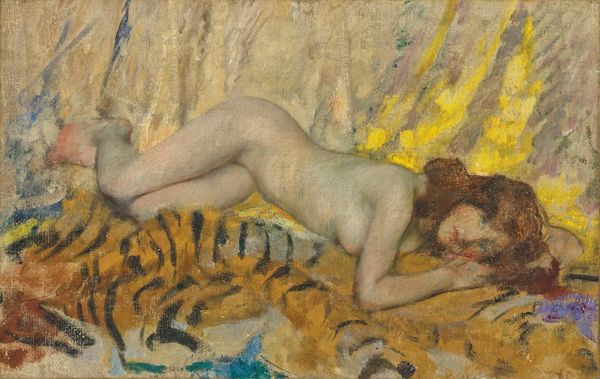
drawing, oil-paint, pastel
#
portrait
#
drawing
#
oil-paint
#
charcoal drawing
#
oil painting
#
intimism
#
pastel chalk drawing
#
symbolism
#
pastel
#
nude
Copyright: Public domain
Editor: This is "Massaida on the Divan," created in 1912 by Théophile Alexandre Steinlen, using oil paint and pastel. It feels both intimate and somehow distant. What do you see in this piece? Curator: I see a convergence of the personal and the exotic, common themes during the Symbolist movement. The red flower Massaida wears is not accidental; color carried psychological weight. Red, for example, often stood for passion or even danger. Does it feel harmonious with the shadows or confrontational? Editor: Confrontational, definitely. Especially with how her skin seems to melt into those deep browns. Curator: And what does the inclusion of the fruit suggest to you? Fruit is frequently a signifier, a cultural shorthand, for knowledge, temptation, earthly pleasures… even a specific kind of fecundity or potential, drawing heavily from inherited symbolism like the story of Adam and Eve, as filtered by the colonial imagination of the period. Notice how it's offered to us as viewers, but lies outside the main subject's space. Editor: I never would have considered the religious allusions! I mostly noticed the color palette and her pose. It's like she is relaxed and alert at the same time. Curator: It is this push-and-pull between signifiers and moods, between traditions of representation and artistic interpretation, that generates much of the painting’s intriguing tension. Her alert state can invite contemplation around identity and power as performed by those being painted, and those consuming these artworks. Editor: That gives me so much to think about, thank you for sharing these perspectives. Curator: My pleasure. Seeing these cultural symbols helps us connect to the work on multiple levels.
Comments
No comments
Be the first to comment and join the conversation on the ultimate creative platform.
